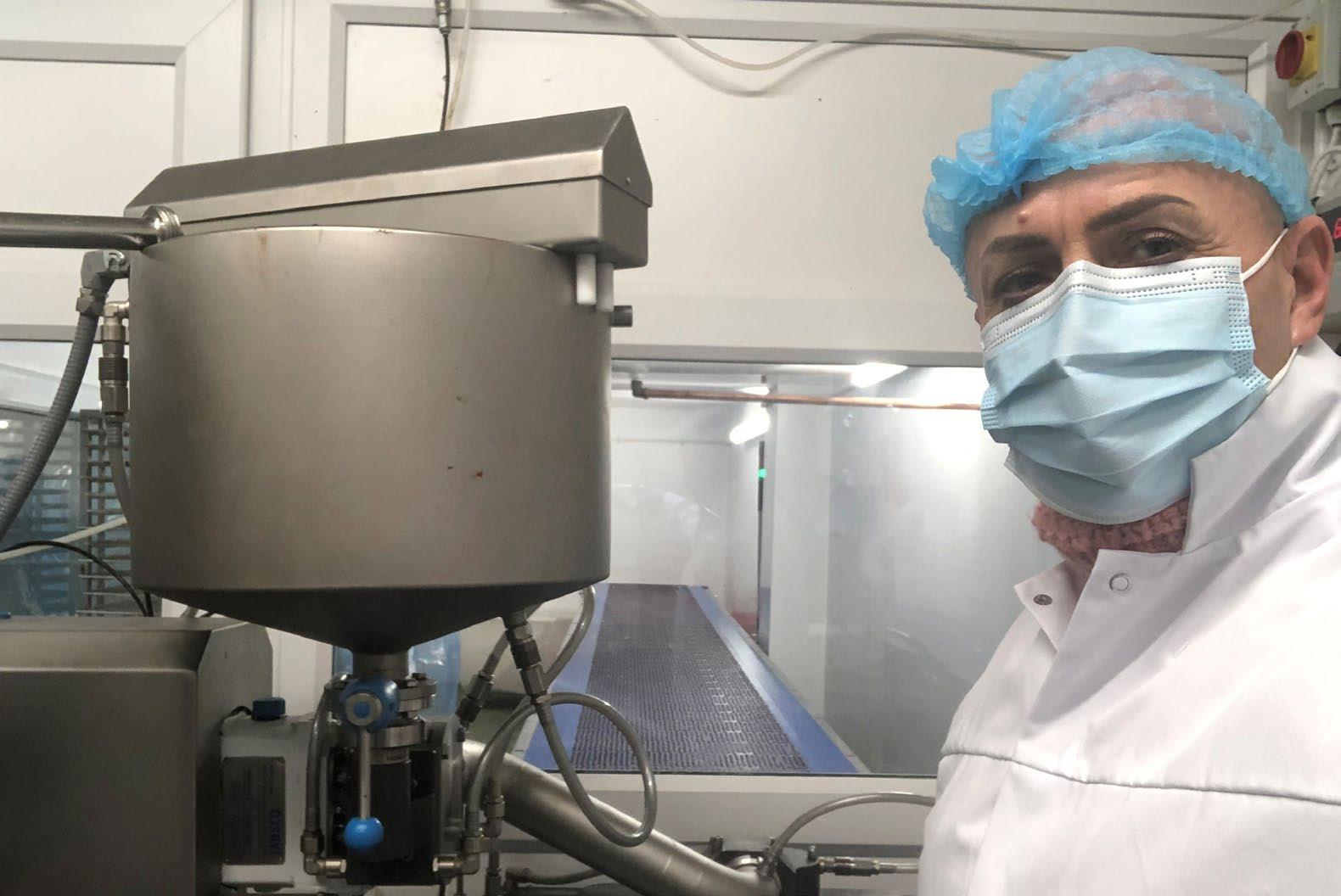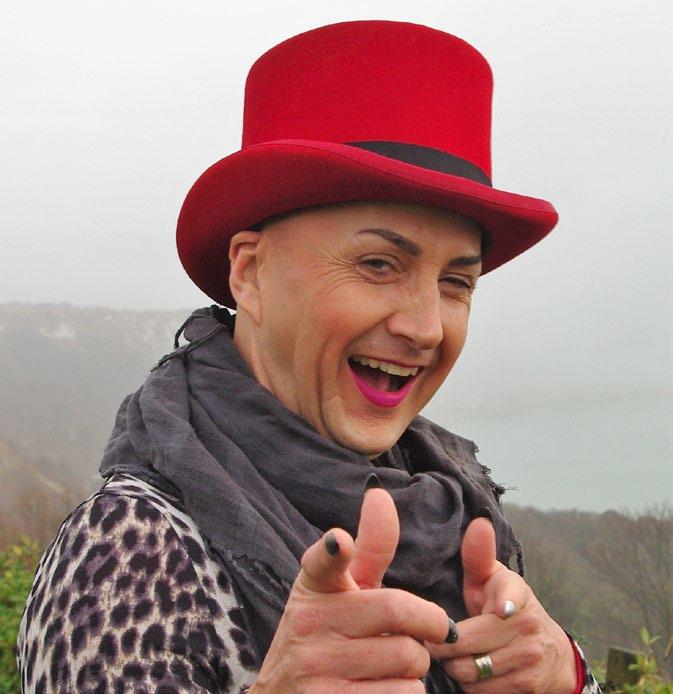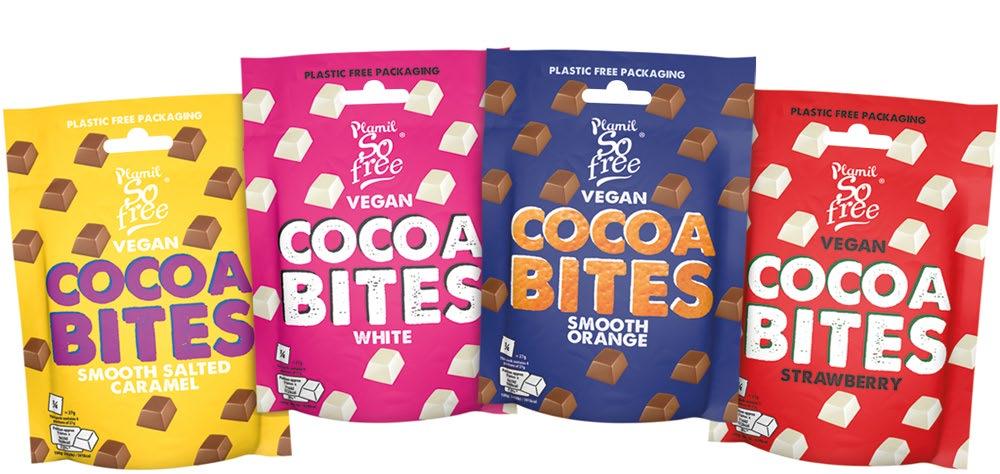
4 minute read
PLAMIL: THE BEGINNING
Adrian Ling, Plamil’s CEO, looks back on the early days of Plamil and the first vegan chocolate.
Anyone who meets the Plamil team is always impressed with the drive and energy they have for all things chocolate. Indeed they have a food passion that has transcended the generations, for indeed it is generations since the company was founded by a group of pioneers that could, as it happens see well into the future with astonishing clarity. ‘Foodies’ are not often associated with ‘vegan’ but these vegan pioneers such as Arthur Ling and Leslie Cross translated the early ideals of wanting dairy and meat free foods into actually producing products. It could be said that both from the products they made in the 1950s, 1960’s and following years set the scene and seeded the marketplace with products, that in the last few years has become a multi billion pound market place.
Advertisement

Plamils roots are indistinguishable from the Vegan Society but today Plamil is headed by the highly individual Adrian Ling who is an outspoken and ardent campaigner for the meaning of veganism. The Plamil message has been clear for many years, upholding the original values of Vegan, ethical sourcing and logical labelling.
From its origins of manufacturing of soya milk, Plamil soon identified that chocolate, even dark chocolate had a milk content. This remains the same today as it did in the past. “The only solution to provide a milk free chocolate was to make it ourselves” say Adrian. In 1983 I was at college studying engineering and my father suggested Plamil were going to start to manufacture chocolate. “Whilst engineering background was useful, who could resist the world of chocolate” he continues. So that’s how, unlike so many chocolate brands, Plamil manufactures chocolate in its own factory. Quite fitting Adrian points out that now part of the dairy free Plamil manufacturing site is in what was once an old dairy. The early years of producing chocolate were highly eventful, making chocolate for a limited market, with just enough return to start to invest in better and newer equipment. Looking back Adrian says that he is glad that it really was a ‘hands on’ production. “There were just three of us then, a great way to start to understand chocolate manufacturing, the realities of equipment and how to put a formulation together”. He remembers

Adrian Ling, CEO of Plamil
there were many trials until we made a product that was ready to be sold and then we had to find a market to sell it.
Gradually the company found sales in the health food trade and started to export, expanding its retail range to include many ‘firsts’ in non dairy chocolate including ‘milky’ and white. Over the years the manufacturing processes and market has substantially changed. Noting trends and demands is in the blood stream of the company, often making products or nudging other parameters that keep the company one step ahead. Whilst the company was the first to be Organic certified in the United Kingdom, it sees that long term sustainability is the key to good business and to protecting the planet.

Vegan and sustainability ideology includes people” says Adrian “whilst I now ‘dream in chocolate’ equally I would have nightmares if the company, my life and staff salaries was sustained with the use of child slave labour”. More conventionally on sustainable matters Adrian continues “powering our chocolate factory with 100% renewable energy was neither economic or recognised as a benefit when we started decades ago, but it was and is the right thing to do”.
So how did Plamil, a company that is not a household name, despite being the original vegan company become such a hub of vegan chocolate?
Adrian explains it’s about seeing the long term trends. “With the growth of the vegan market we identified that having a retail brand was only part of potential growth”. Despite Adrian’s obvious creativity in engineering and formulations Plamil saw it was obvious that the market would expand to such a point in which a multitude of brands creating a whole range of products would emerge. Plamil invested in considerable extra capacity in 2020, despite Covid to supply this growing market, “These brands would be seeking more and more truly vegan chocolate ingredient and that’s exactly what has happened” Adrian smiles.
So what does Adrian mean by truly vegan chocolate? He explains “The Vegan Society’s own definition of vegan is that products should be ‘animal free’. Their criteria for use of their own trademark however allows for ‘may contain’, which particularly in the case of chocolate inevitable means it does contain and is therefore not animal free. Being myself involved with the start of that trademark with my father at the vegan Society, I know my father and others would be highly offended to learn that many were ‘selling out’ the vegan term for commercial gain.
plamilfoods.co.uk











